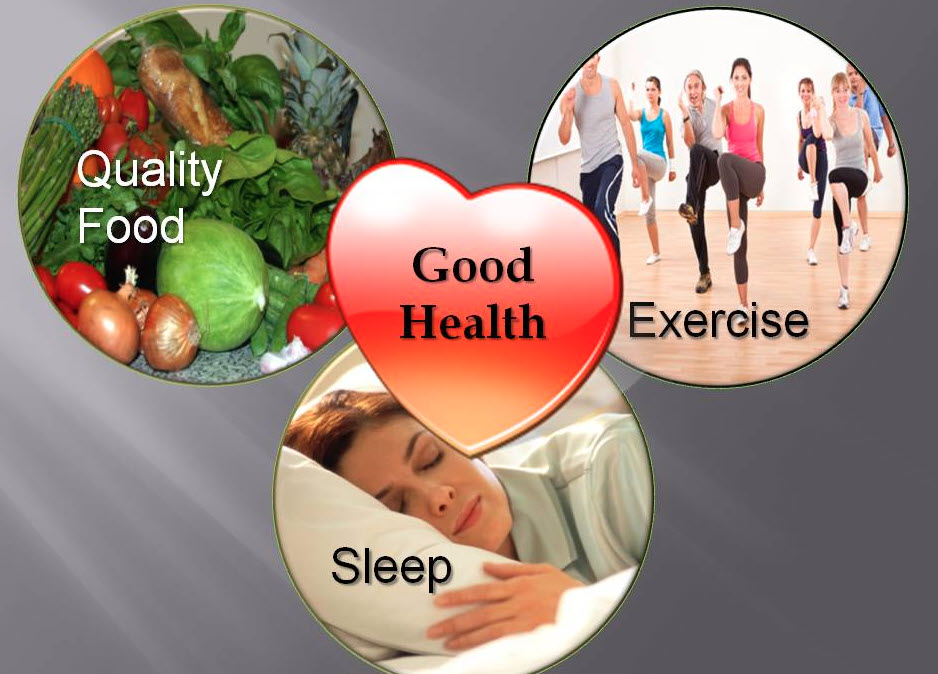How to Have a Good Health – The Way To Maintain Your Health

Staying healthy is influenced by a variety of things. As a result, good health can lower your risk of developing certain diseases. Heart disease, stroke, several malignancies, and traumas are among them. How to have a good health? So, learn what you can do to keep your health and that of your family.
Nutrition
Eat a variety of nutrient rich foods
For proper health, your body need more than 40 distinct nutrients, none of which can be obtained from a single source. A variety of nutritious carbs, protein, fruits, vegetables, and dairy products should be included in your daily diet. Visit mypyramid.gov to get the USDA’s food guide.
Eat moderate portions
It’s easy to eat what you want while still maintaining a healthy and balanced diet if you keep portion sizes moderate and sensible. What is the definition of a moderate portion? One serving equals a medium-sized piece of fruit. A cup of spaghetti equals two servings, but a pint of ice cream equals four.

Do not skip meals
Skipping meals can cause uncontrollable hunger, which often leads to overeating. If you’re short on time, snacking in between meals can assist. Just make sure you eat two well-balanced meals each day.
Do not eliminate certain foods
Because our bodies require a variety of nutrients, it’s not a good idea to cut out all salt, fat, and sugar from our diets unless advised by a doctor. A balanced diet can be achieved by selecting healthier products such as skim or low-fat dairy.
Foods are not good or bad
It’s all about how much you eat!
Drink water
Avoid cokes and other sugary drinks, which can contain up to 17 teaspoons of sugar per 20 ounces! Sugar is a source of empty calories that depletes your body’s vitamins and minerals. Water aids in blood circulation, the removal of toxins from our systems, and the regulation of our body temperatures, in addition to hydrating us.
Avoid too much caffeine
Caffeine is a mildly addictive stimulant that can impair your ability to sleep and concentrate, as well as alter body systems like muscular function and waste removal.
Fitness and stress management
Be active
- Instead of taking the elevator, take the steps.
- Every day, engage in at least 30 minutes of physical activity. If the thought of sweating for hours at a gym does not appeal to you, head outside for a game of ultimate Frisbee. Alternatively, go for a stroll or a run. What matters is that you get started!
Relax
- To avoid unneeded and avoidable stress, keep oneself organized.
- Turn off the television and listen to music instead.
- Make time for rest and introspection every day, even if it’s only for 15 minutes.
- Make sure you get enough rest.
- Allow at least 30 minutes of peaceful calming activity, such as reading, before going to bed.
- When you’re stressed out from writing papers, studying, etc., resist the urge to use sleeping pills.
- It is not a waste of time to sleep! It’s just as vital as eating well and exercising.
Social health
Get active and meet new people in a fun setting.
Adjusting to college can be challenging, especially when students are leaving behind a support system they have known for a long time. Helping others helps us, whether it’s on a sports team or in Rhodes Student Government, joining a religious organization, working at a soup kitchen, or in some other way. The most essential thing to keep in mind is to choose something that interests you and to have fun with it.

Things to consider
In addition to the aforementioned considerations, you should schedule time for total body wellness. Check in with your doctor on a regular basis. This includes your primary care physician as well as your dentist and optometrist. Make the most of your health benefits and preventive care programs. Make certain you understand what your health insurance policy entails. Preventive treatment can detect disease or ailment before it develops. This includes certain doctor’s appointments and screenings.
You must devote time to your breast health. Breast cancer is one of the most common causes of death among women. Breast cancer can strike men as well. Consult your doctor to determine when you should begin receiving mammograms. If you have risk factors, such as a family history of cancer, you should start screening as soon as possible. A monthly self-exam is one technique to identify breast cancer.
Women should also obtain pap smears on a regular basis. Women between the ages of 21 and 65 should be tested every three years. If you have specific medical issues or have had your cervix removed, this may be different.
Inquire with your doctor about further cancer screenings. Beginning around the age of 50, adults should be checked for colorectal cancer. Your doctor may want to run tests to see whether you have any additional cancers. This will be determined by your risk factors as well as your family history.
Make a note of all the medications you’re currently taking. You should also keep up with your vaccinations, including taking a flu vaccine every year. Every ten years, adults require a Td booster. Tdap may be substituted by your doctor. This also helps to prevent whooping cough (pertussis). The Tdap vaccine is required for pregnant women. People who have a lot of interaction with newborns should also get it.
The bottom line
A few simple strategies can help you improve your eating habits and overall health. Still, if you want to live a better life, don’t rely just on what you eat. Exercise, sleep, and social connections are also essential.
It’s simple to make tiny changes that can have a major impact on your overall health with the evidence-based advice above. See more useful article at my website y2kcenter.org




